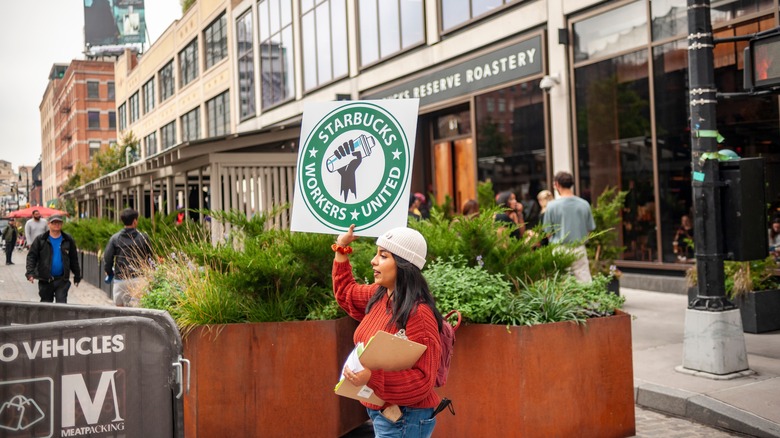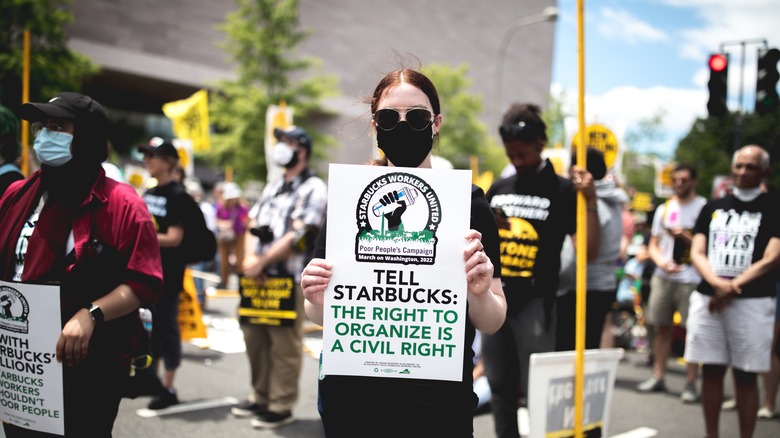Starbucks Is Being Held Accountable For Threats To Unionizing Employees
Starbucks and its attorneys have been busy over the past few years navigating a slew of accusations, lawsuits, and unionizing efforts among some of its employees. The coffee titan's website says "We call our employees partners because we are all partners in shared success," but the members of the National Labor Relations Board (NLRB) have repeatedly found that Starbucks hasn't negotiated in good faith (or sometimes at all) with workers who have chosen to form unions, according to the Society for Human Resource Management.
Bloomberg Law points out that much of Starbucks' efforts to thwart employees' unionizing efforts have focused on its flagship Seattle Roastery, which is located a few blocks from the first Starbucks location and is just one of the more than 250 locations that have joined Starbucks Workers United. When the Roastery was opened in 2014, Starbucks CEO Howard Schultz called it "the fulfillment of a decades-long dream — an homage to our relentless pursuit of coffee innovation," per the Starbucks Reserve website.
Despite this high praise, a new NLRB ruling puts Starbucks' treatment of unionizing workers at the Seattle Roastery and other locations in the headlines once again.
The NLRB ruled that Starbucks illegally threatened unionizing employees
Bloomberg Law reports that on February 1, 2023, NLRB Administrative Law Judge John Giannopoulos ruled that Starbucks had illegally threatened workers in multiple ways during a union drive at the Seattle Roastery. According to the ruling, Starbucks illegally told workers it would be useless to unionize, while also threatening to end or reduce benefits for workers who voted to unionize and give non-union locations priority in receiving new benefits while skipping over union locations.
A statement from Starbucks representative Andrew Trull denied the company had acted illegally and said "We have consistently encouraged our partners to exercise their right to vote in union elections," according to Bloomberg Law.
Judge Giannopoulos dismissed the charge that Starbucks held anti-union "captive audience meetings" — that is mandatory meetings during work hours organized by employers. The ruling says that although the meetings were not voluntary as Starbucks argued, they were legal under an older NLRB ruling. The 75-year-old ruling and the precedent it has set in the years since are likely to be challenged in the future.
Capitol Hill Seattle Blog points out that Starbucks is simply continuing a trend of opposition to unionization, as it closed the first Seattle location that unionized in late 2022. Starbucks Workers United says the move was a "clear-cut case of retaliation" as the closure date marked the anniversary of the Broadway cafe's decision to join the union.

